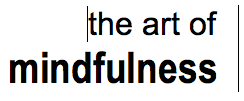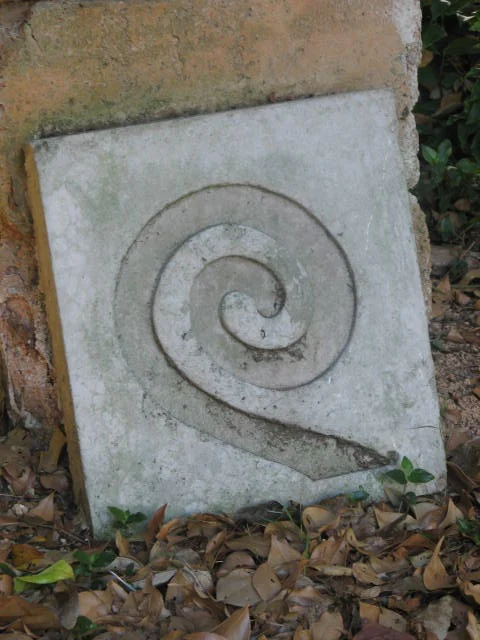ARTICLE: A different paradigm
/There’s a story I once laughed at, about a man whose oil light was flashing red as he was driving through the city. He got out of the car, but instead of adding oil, proceeded to rip out the connection to the low-oil warning light, then got in the car and happily drove off.
Now you and I know there won’t be much of a lag-time before the lack of oil makes itself known in a more dramatic and palpable way. But when we extend the metaphor to the earth’s warning signals, it seems to me that the sheer vastness of the earth and its ability to imperceptibly adapt to misuse is preventing us from realising how unintelligently we, as a species, are responding to the root causes of imbalance. In other words, the apparent forgiviness of the planet is blinding us to the fact that we are not the slightest bit different from the man I laughed at.
There is a natural law that will become evident in time – there is always a tipping point, at which time stress is no longer tolerated, in much the same way that a human organism will, without mindfulness, tolerate overwork and stress, adapt, tolerate ... adapt, tolerate … until it is impossible to sustain the strain and the person will manifest symptoms of overuse, burnout, or illness.
I recently listened to an interview concerning the development, by AgResearch scientists, of compounds which , when fed to cattle, can reduce methane production by up to 90%, thus providing “a technology that could significantly reduce New Zealand’s greenhouse gas emissions.” I felt heavy-hearted because at no point was either person asking deeper questions, ones that would confront the paradigm this kind of intervention is arising from.
I'm sure you’ve heard the Albert Einstein quote:"We can't solve problems by using the same kind of thinking we used when we created them." We, as a human species, have created problems from a paradigm of fear-based consciousness, individual consciousness, one that prioritizes economic and personal gain, one that controls conditions for personal gain and sees oneself as separate from other individuals and other species. We farm and modify the natural life of animals for economic gain as if it is our undeniable right, with no gratitude, no wisdom, no honoring of the lives we take to survive. We pollute the waterways, we upset the atmosphere, we give no attention to keeping the subtle harmony of life in balance. We act as if we don’t depend on the same Life that gives life to all species. The arrogance of this is breathtaking.
If I believe I am separate, and my worth is predicated on externals, it is inevitable I will very seriously dedicate my energy into controlling conditions - and other people - so that I am fulfilled. This is not wrong, it’s simply an error based on forgetting what it is I really depend on. My unconscious questions centre around how I can get happy through conditions being arranged to suit me best, or how I can be successful, look good, be admired, and so on. At an organizational level, these questions become based around how “we” can win economically. When I am driven unconsciously by these questions, it is an impossible task to leap out of that paradigm - it would be akin to lifting the entire weight of my body by my own shoe laces – in order to ask more intelligent questions.
I depend on the sun, as you do, on the ocean, the tides, and the earth. I depend on the same air you depend on to breathe. I don’t keep myself alive, and nor do you. I am not in charge of this delicately-tuned web of Life, and nor are you. You and I have an intimate inter-relatedness with all things, with all Life.
Now, when I begin to feel this in my guts, my questions become more like these:
“Am I living in harmony with the laws of Nature?”
“Am I mindful enough to discern whether this action or decision robs me, or others, of the natural joy of Living”
“How will this action affect the whole?”
Isaac Newton watched an apple fall and asked intelligent questions: Why did it fall downwards? Why not sideways? Of course he was thought to be eccentric because he questioned a basic paradigm that everyone accepted unconsciously (Well of course, don’t be foolish, everything falls downwards!).
I cannot transcend or let go of the need to control until I have found a different and internally-generated source of power within myself: the force of Life itself, unadulterated by any attempts to get satisfied externally. I need to be already feeling the joy of simply Being and be genuinely therefore without the motivation for personal gain. And this can only happen as I wake up to what is real.
The notion that I am a separate individual and that I need to look out for myself at the expense of others is the unreal paradigm. Any action within this paradigm will create more problems of the sort the actions are trying to solve. There is another paradigm. It is Love of the impersonal sort, in which I will put down my own agenda for the sake of the benefit of the whole.
Then, perhaps, a group of wise elders might gather before any decision is made about anything affecting the earth that is in their stewardship. Perhaps they might honour and remember the great force of Life that is holding this whole show in place. Perhaps they might, with ease and humour, consider that it may be time to take the god of economic gain from its pedestal in order for the earth to re-balance, even if that means some severe inconvenience to themselves for quite some time.
Genuine reverence for Life, honouring of the fine-tuned balance of land and marine ecosystems, will only arise from a different paradigm of consciousness and therefore of thinking. There is only one solution, one question, one premise. There is only one event going on here.
It is Love.

